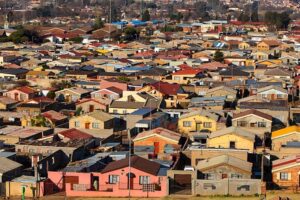Elections, ideally, are about policy preferences. Electing a particular political party over another is assumed to mean that the winning party’s policies and programs are preferred. Once elected, voters expect successful delivery of those policies and programs. Even those who did not vote for the winning party have this expectation.
What happens after elections, when voters are called upon to evaluate the performance of the winning party after forming their government? Do they give an objective assessment as citizens offering fair and impartial feedback to government or do they remain voters, loyal to the party they voted for in the election?
Also, before another election, when asked to evaluate government performance, is their evaluation shaped by their voting intentions?
Let’s turn to the Afrobarometer Survey for some insights.
How I voted and evaluation of government performance
Afrobarometer Round 7, 2017 asked respondents which party’s presidential candidate they voted for in the 2016 election. It is the only time that the survey has asked this question. In all other rounds of the survey, the standard question has been whether the respondent voted in the previous election or not. The survey regularly asks questions about government performance in several policy domains.
Is there any relationship between how respondents voted in 2016 and how they rated government performance in 2017, the first year of the Akufo-Addo presidency? Yes, indeed. Let me summarize some key observations from examining five key public policy domains.
- Managing the economy – 47.7% of those who voted for the NDC rated government performance well compared to 79.4% of those who voted for the NPP.
- Creating jobs – 24.8% of those who voted for the NDC rated government performance well compared to 59.7% of those who voted for the NPP.
- Improving basic health services – 47.2% of those who voted for the NDC rated government performance well compared to 75.7% of those who voted for the NPP.
- Addressing education needs – 68.4% of those who voted for the NDC rated government performance well compared to 90.9% of those who voted for the NPP. On this, you can understand the relatively high percentage among those who voted for the NDC – it was the year in which the government implemented the Free Senior High School (Free SHS) program.
- Fighting corruption – 38.5% of those who voted for the NDC rated government performance well compared to 75.6% of those who voted for the NPP.
How I intend to vote and evaluation of government performance
Now, let’s skip from Afrobarometer Round 7, 2017 to Round 9, 2022 and this time look at voter intentions and evaluation of government performance in the same five categories discussed above. If you recall, I have mentioned in a few of my opinion pieces that Afrobarometer asks respondents about their voting intentions.
Is there any relationship between how respondents say they intend to vote in the next election and how they evaluated government performance in Round 9, 2022 of the survey? Certainly. Let me summarize some key observations from examining five key public policy domains.
- Managing the economy – 7% of those who intend to vote for the NDC rated government performance well compared to 40% of those who intend to vote for the NPP.
- Creating jobs – 9% of those who intend to vote for the NDC rated government performance well compared to 35% of those who intend to vote for the NPP.
- Improving basic health services – 33% of those who intend to vote for the NDC rated government performance well compared to 60% of those who intend to vote for the NPP.
- Addressing education needs – 30% of those who intend to vote for the NDC rated government performance well compared to 63% of those who intend to vote for the NPP.
- Fighting corruption – 8% of those who intend to vote for the NDC rated government performance well compared to 30% of those who intend to vote for the NPP.
In Conclusion
Clearly, if I vote for the winning party, I evaluate their government performance well. The opposite is true if I did not vote for the winning party.
Again, if I intend to vote for the incumbent party, I generally evaluate their performance well. If I intend to vote for the main opposition party, my evaluation is different.
Nonetheless, I found two areas intriguing. First, those who did not vote for the winning party in 2017 rated government performance quite well on how well it was addressing education needs. Second is the evaluation of the fight against corruption among those who intend to vote for the incumbent party.
How one votes, past or intended, indeed shapes how well or not voters think the government is doing.
 John Osae-Kwapong (PhD.) is a Democracy and Development (D&D) Fellow at CDD-Ghana, Associate Provost for Assessment, Accreditation, and Institutional Effectiveness, Baruch College, The City University of New York.
John Osae-Kwapong (PhD.) is a Democracy and Development (D&D) Fellow at CDD-Ghana, Associate Provost for Assessment, Accreditation, and Institutional Effectiveness, Baruch College, The City University of New York.















